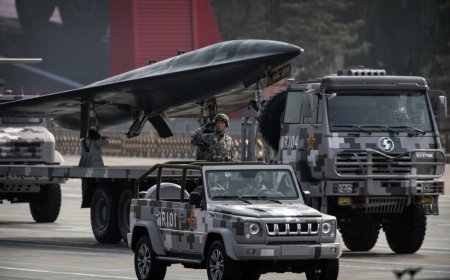The Unacceptable Price of Conflict: A Critical Examination of Recent Israeli Actions in Lebanon
In the landscape of modern warfare, adherence to international humanitarian law (IHL) is crucial to safeguarding the lives of innocent civilians. The recent Israeli attacks in Lebanon, particularly the use of explosive communication devices, have sparked widespread outrage and raised serious questions about the legality and morality of such actions.

In the landscape of modern warfare, adherence to international humanitarian law (IHL) is crucial to safeguarding the lives of innocent civilians. The recent Israeli attacks in Lebanon, particularly the use of explosive communication devices, have sparked widespread outrage and raised serious questions about the legality and morality of such actions.
According to reports, these attacks resulted in dozens of civilian casualties and thousands of injuries, many of which were devastating. Victims included not only adults but also children, such as nine-year-old Fatimeh Jafar Abdullah, who tragically lost her life in the violence. This incident is a stark reminder of the collateral damage that often accompanies military operations, underscoring the urgent need for a clear distinction between combatants and non-combatants in conflict zones.
The Violation of International Humanitarian Law
International humanitarian law, as established by the Geneva Conventions, mandates that only armed members of opposing parties may be targeted in conflict. This principle aims to protect civilians—including doctors, journalists, and aid workers—from the ravages of war. However, the recent explosions in Beirut raise significant concerns about Israel's adherence to these principles. Legal experts have described the attacks as a blatant violation of IHL, particularly the principle of distinction, which obliges combatants to distinguish between military targets and civilians.
Alonso Gourmendi-Dunkelberg, a political and economic expert based in London, pointed out that prior to such an attack, Israel was obligated to verify the affiliation of individuals with the armed forces. This level of due diligence was conspicuously absent in the recent operations, which involved simultaneous explosions across multiple locations, endangering countless lives.
Janina Dill, co-director of the Institute for Ethics, Law and Armed Conflict at Oxford University, echoed these concerns, stating that the scale and nature of the attacks made it virtually impossible to conduct the necessary assessments to ensure civilian safety. The presence of explosive devices in everyday settings, such as homes and marketplaces, illustrates a stark disregard for the most basic human rights during wartime.
The Ethical Implications of Targeting Civilians
The targeting of civilian populations, regardless of their affiliations, is a gross violation of IHL. Ellen Nohl of the Diakonia Center for International Humanitarian Law emphasized that no justification exists for attacking individuals who are not directly involved in hostilities, even if they have indirect links to armed groups. The notion of military necessity, which permits the use of force only when absolutely essential, has been egregiously breached in this instance.
Moreover, the use of improvised explosive devices (IEDs) in these attacks poses further legal challenges. According to the Second Amendment Protocol to the Weapons Convention, which Israel has ratified, the use of devices that act unpredictably is prohibited. Andrew Clapham, a prominent scholar on war and a professor at the Geneva Graduate Institute, highlighted that the deployment of such weapons is not only designed to cause harm but also constitutes a serious breach of international legal standards.
A Call for Accountability
These recent actions by Israel do not exist in a vacuum; they represent a troubling pattern of behavior that includes targeted assassinations and covert operations that flout human rights and international law. The international community must not remain passive in the face of such barbarism. It is imperative that governments, human rights organizations, and international bodies respond robustly to these violations to hold accountable those responsible for endangering innocent lives.
The tragic loss of civilian life in Lebanon serves as a somber reminder of the human cost of conflict. As we reflect on these events, it is crucial to reaffirm our commitment to protecting civilians in war and to advocate for a more humane approach to conflict resolution—one that prioritizes the sanctity of human life above all else.













































